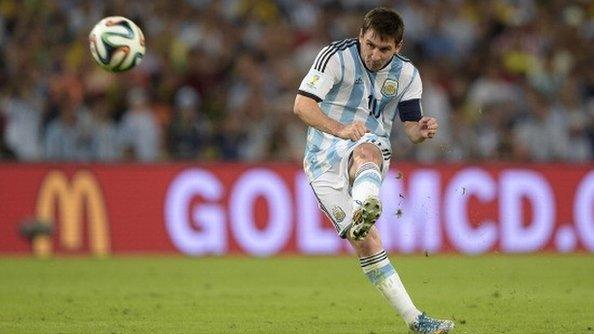Fifa scandal: What took Switzerland so long to investigate?
- Published
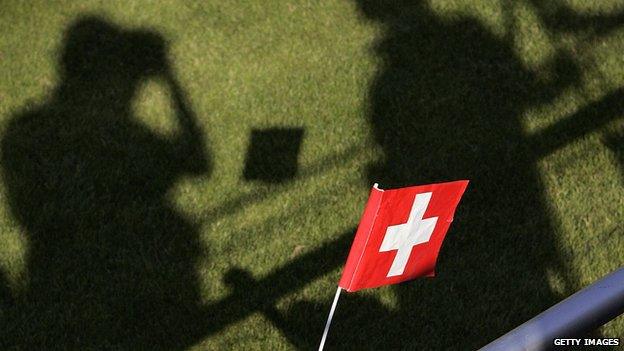
Switzerland is in focus again as part of another financial scandal
US prosecutors gave an astonishing amount of detail as they revealed their corruption investigation into football's governing body. Dramatic descriptions of corruption, graft and bribery by Fifa officials were offered to the world's media.
We know much less about the second investigation, launched by Switzerland.
It is not the Swiss way to stage dramatic press conferences while investigations are under way, or even to supply much information to the public at all - a habit that has been criticised in the past.
But we do know the Swiss enquiry is into Fifa itself, and more specifically into the way in which the 2018 and 2022 World Cups were awarded to Russia and Qatar.
More dramatic
Potentially then what the Swiss investigators come up with could have wider implications than the US case.
It is a criminal investigation, and while football bosses, at America's request, were ignominiously being dragged out of their beds in a swish Zurich hotel, Swiss prosecutors were raiding Fifa headquarters.
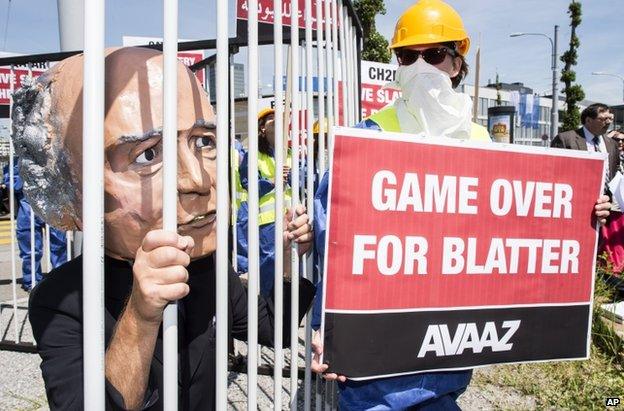
Protesters in Zurich called for Fifa president Sepp Blatter to go
They took away computers and documents.
They say they suspect money laundering, through Swiss banks (again), and other financial "irregularities" in relation to the success of the Russian and Qatari bids.
It could throw doubt over the 2018 and 2022 World Cup competitions.
That would really shake Fifa to its core - something far more dramatic than the incarceration of half a dozen elderly football bosses.
Taken so long
Despite the scope of the Swiss investigation, a number of questions are being asked today about why it has taken Switzerland so long to take a close look at the multi-million dollar sporting associations on its territory.
Traditionally Fifa has been subject to the vaguest legislation, its book-keeping standards needing to be no more rigorous than those of the village ski club.
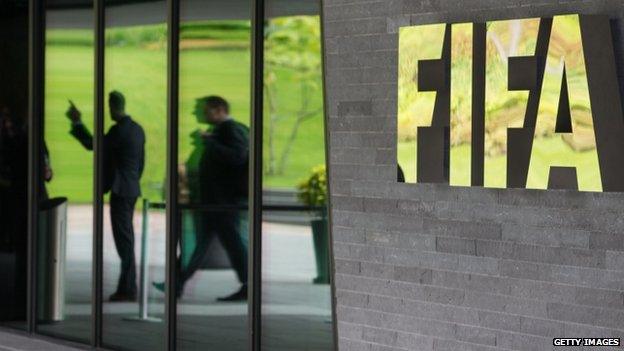
Swiss prosecutors raided Fifa's headquarters in Zurich on Wednesday
Only very recently did the Swiss parliament pass new laws classing the heads of sporting associations (not just Fifa, but Uefa, the International Olympic Committee and many others based in Switzerland) as "politically exposed persons", meaning their bank accounts and financial dealings can be scrutinised.
Members of parliament, like Swiss People's Party representative Roland Buechel, campaigned hard for that legislation.
Now, in the wake of the dramatic arrests, he and many other politicians believe it is time for Mr Blatter to go.
Regularly in the headlines
But many in Switzerland believe this scandal is about more than Sepp Blatter and Fifa.
One day after the arrests, the Swiss newspaper headlines are blunt, and angry.
One after another, editorials address what they call a "culture of corruption".
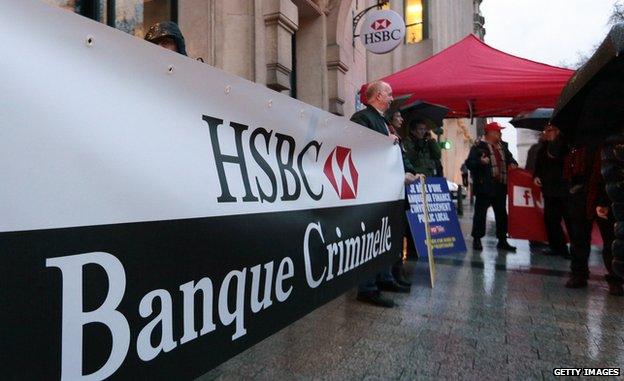
Claims that HSBC's Swiss private bank helped clients evade tax drew international condemnation
And while Fifa may be their immediate concern, deep down there is growing impatience that of all countries, Switzerland should be the one so regularly in the headlines when it comes to financial impropriety.
Whether it is the big Swiss banks themselves, or foreign banks like HSBC courting tax evaders from its plush branch in Geneva, or international sporting associations like Fifa, there is a growing feeling here that Switzerland has been too slow, and too quiet, about financial crime.
Surely, many Swiss are saying, our country has more to offer than a place to do deals or hide money.
- Published28 May 2015
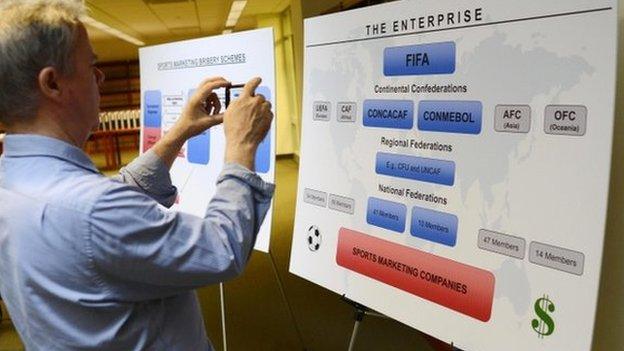
- Published6 January 2016
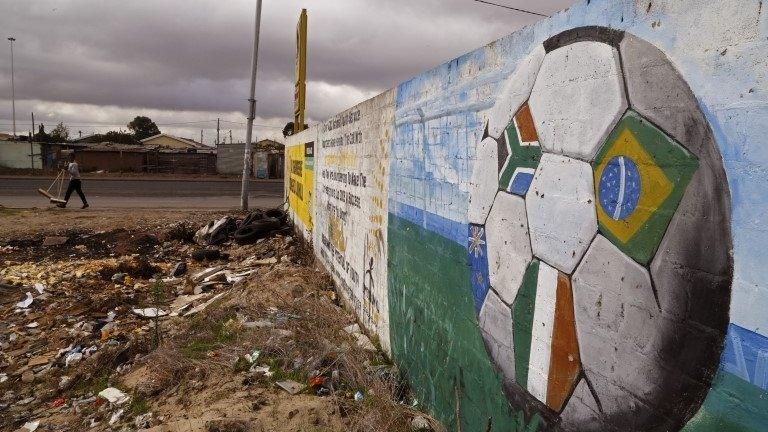
- Published29 May 2015
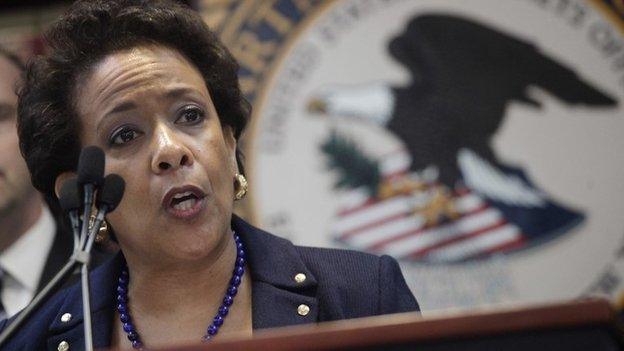
- Published28 May 2015
